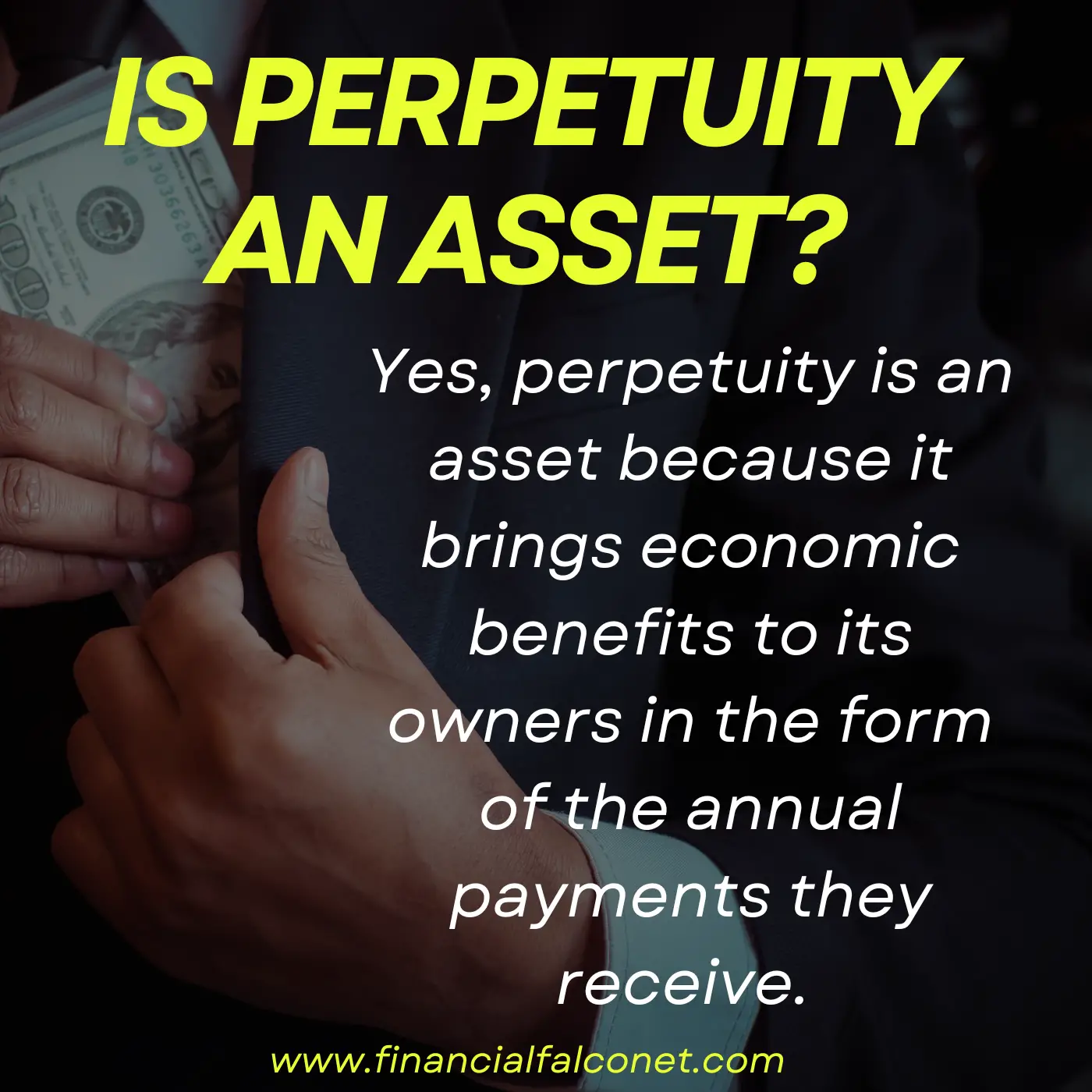There are several investment options available to individuals or corporate entities, each one with its terms, minimum investment amount, and benefits accruing from the investment.
In most instances, before an individual or an organization chooses an investment, they are likely to consider their financial goals, whether or not they can afford to make the investment, and if it will provide them a good return on their investment.
Investors generally want to increase their assets when they invest while limiting their liabilities. Investing in a perpetuity-based investment such as the stocks of a company or real estate is one way of adding to an individual or corporate stream of income.
Different kinds of perpetuities exist and each of them provides the investor certain benefits such as receiving payments that are either fixed or growing at a specified percentage or receiving payments within the first year of investing or after a few years.
Before we provide an answer to the question, is perpetuity an asset? Let us define some key terms.
Read about: Present Value of Perpetuity Formula and Calculation
What is perpetuity?
A perpetuity in finance is a term used to refer to any investment that provides cash flow for the investor perpetually. This means there is no end date for the cash flow accruing from the investment.
For example, if Mrs. Smith makes an investment that will pay her $100 annually and continues paying indefinitely without an end date, it means that the investment is a perpetuity.
Perpetuities are one among many extant investment options and it has the potential to provide its holders with a consistent guaranteed stream of income because it does not have a maturity date.
If a person or a corporate organization buys a perpetuity-based investment, they can expect payments from the investment to go on for an indefinite period.
Stocks, whether preferred or common that pay dividends are one of the most common examples of perpetuities because the stockholders often get paid dividends for as long as the company from which they bought the stock is operational.
Additional examples of investments that work as perpetuities are endowment funds and real estate. For endowment funds, it is usually the interest (which is generally between 2-10%) of the initial investments that gets paid out annually.
In the case of real estate, it is the rent received from tenants that is considered a perpetuity since it is assumed that such payments will continue coming in as long as the property is habitable.

Read about: Is supplies an asset?
What is an asset?
An asset refers to any resource that is economically valuable and is owned by an individual, business corporation, government, or any other corporate entity. Assets provide benefits to their owners either currently or have the potential to provide future benefits.
The benefit could be easing operations, raising a company’s value, reducing cash outflows, increasing cash inflows, or increasing an individual’s net worth.
For instance, if a company has machines that aid their production of goods, the machines can be considered assets of the company since they ease the company’s operations.
Assets are broadly classified either as tangible or intangible assets based on their physicality. Tangible assets are resources that can be physically handled and seen, common examples include land, machinery, inventory, property, and equipment.
Intangible assets are resources that cannot be physically seen but still bring value to their owners, common examples, in this case, include goodwill, intellectual property, copyrights, and patents.
Read about: Is Merchandise Inventory an Asset?
Is perpetuity an asset?
Yes, a perpetuity is an asset for the person or organization that owns it because they will keep receiving payments indefinitely as a result of the perpetuity.
There are several types of perpetuities such as delayed, growing, and fixed perpetuity. A delayed perpetuity pays the investor a specified amount after a specified period.
For instance, if a person invests in a delayed perpetuity in 2023, they may not receive any payment until after two years or more. However, once the payments start, they continue perpetually.
In the case of a growing perpetuity, the payments received increase by a certain percentage at each payment. This means subsequent payments are always higher than previous ones.
For example, if Miss. Anita invests in a growing perpetuity and was paid $30 in the first year, if the growth rate of the returns is 10%, it means that the next payment will be $33. Thus all payments she will receive in the future will be 10% greater than the previous payment.
Growing perpetuities are often considered more advantageous by many investors because the growth rate of the returns ensures that the investor still gets a reasonable cash flow that will not be adversely affected by time.
A fixed perpetuity is the opposite of a growing perpetuity, the payment received is pegged at a particular amount and remains the same always. For instance, if the payment is $50 annually, it indicates that the investor will always receive $50 annually indefinitely.
Although each of these perpetuities differs in how much cash flow the investor will get annually, they are similar in the fact that the payments never end. Thus, the fact that an investor is assured of cash flow from perpetuity investments indicates that perpetuity is an asset because an asset brings economic benefits to its owner.
Read about: Is prepaid insurance an asset?
Conclusion
Is perpetuity an asset? A perpetuity is an asset because it provides an unending income stream for its owner. For investors looking for long-term income streams that can survive economic downturns and evolving market trends, investing in perpetuity could be a move in the right direction.
This is because perpetuities are an asset that provides the investor with an infinite cash flow irrespective of the economic situation or market volatility.
However, learning about the different types of perpetuity before investing is important, as it will help the investor choose the most suitable perpetuity that best aligns with their financial goals and expectations.
Blessing's experience lies in business, finance, literature, and marketing. She enjoys writing or editing in these fields, reflecting her experiences and expertise in all the content that she writes.
